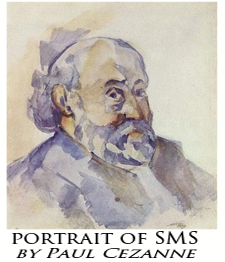 Opinion in Seattle Times: Unionization is like throwing sand in the gears of what is, by any measure, an institution that performs at an extraordinarily high level.
Opinion in Seattle Times: Unionization is like throwing sand in the gears of what is, by any measure, an institution that performs at an extraordinarily high level.
Paul B. Hopkins Ed Lazowska
It is thus the wrong time for the unionization of the faculty at the UW.
It is interesting that there is no example in our country of a unionized tenure-track faculty among the top research-intensive universities, public or

The sad truth is that contingent faculty are treated terribly, Their pay is far below that of pubic school teachers and their working conditions .. hours put in and assignments …. are terrible. The sad part of this is that the SEIU is a terrible choice. It was only chosen because it was the only union that was willing ot put in the money ..perhaps because a UW contract would mean $6 million in dues! The campaign by SEIU ignores the need for a great university to support achievement by elite faculty. Ideally, as suggested by this letter, the Faculty Senate would exercise some leadership and rewrite its code so that these faculty could get paid fairly. Even better, would be finding ways their career ladders could offer opportunities to become full time faculty.
private. Faculty members at these types of universities, like the faculty at the UW, have a great deal of independence and have extremely wide-ranging activities — from 100 percent instruction to 100 percent research, from part-time to tenured, from biologist to pianist to heart surgeon
UW faculty members are often themselves administrators, supervising a number of other university employees. Perhaps this is why recent unionization campaigns at top public institutions, such as the University of Illinois and the University of Minnesota, have to date failed. It would add complexity, not advantage, for a faculty functioning under such diverse circumstances to be required to bargain collectively. As a leading research-intensive university, the UW is the wrong place for a faculty union.
We understand why a subset of UW faculty members is campaigning for unionization. In recent decades, public institutions of higher education throughout the nation, including the UW, simultaneously faced rising enrollment demand from students and declining state investment. In response, they became increasingly reliant upon contingent faculty members. These so-called “freeway fliers” were modestly compensated and had weak job security.
In some states, contingent faculty unionized. In Washington, state law does not allow contingent faculty to unionize separately from other UW faculty. But it is unnecessary to unionize the entire faculty of the UW to improve the circumstances of contingent faculty.
We call on the two branches of UW shared governance, the Faculty Senate and the administration, to collaborate to improve the employment conditions of contingent faculty at the UW. The current chair of the Faculty Senate has already embraced this cause. Using the existing shared governance structure, not forming an overarching faculty union, is the best way to address the concerns of contingent faculty.
The UW’s leading faculty members consider SEIU unionization at this point in time as an unwelcome change — a big step backward. They see multiyear, one-size-fits-all contracts not as progress, but as throwing sand in the gears of what is, by any measure, an institution that performs at an extraordinarily high level.
Those faculty members believe that unionization would serve the excellence of the UW less well than the present system. They believe that unionization would hinder our ability to recruit and retain the next generation of outstanding faculty members and to serve our students. For these reasons, and more, many of them have voluntarily signed a statement of opposition to unionization at UW Excellence (uwexcellence.org).
The University of Washington should distinguish itself as a national leader among research-intensive universities by improving working conditions for contingent faculty members, not by being the first among our peers to gamble with our success by unionizing our entire faculty.
Paul B. Hopkins is the Leon C. Johnson Endowed Professor of Chemistry and former chair of the UW Department of Chemistry. Ed Lazowska is the Bill & Melinda Gates Chair in Computer Science & Engineering and former chair of the UW Department of Computer Science & Engineering.
